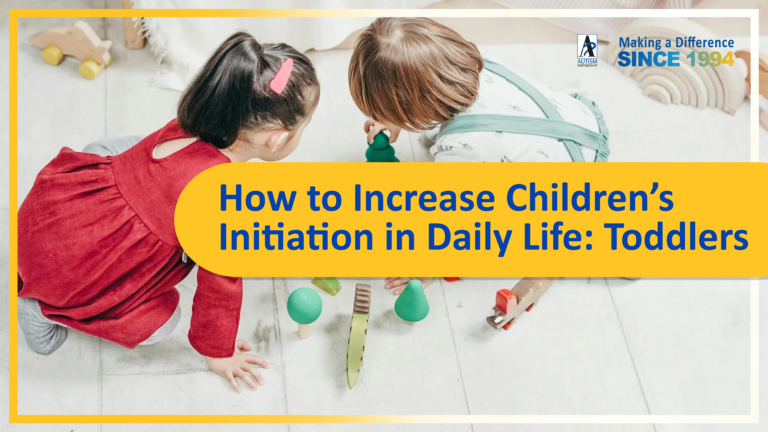
My child doesn’t like to come to study. Sometimes, when it gets difficult, he will start stimming and do all sorts of things, and he doesn’t pay attention anymore. What can I do? – QUESTION FROM A PARENT DURING OUR ONLINE SEMINAR Q&A SESSION IN MAY 2020 Parents and caregivers of children with ASD often […]

Learning motivation has a great impact on students’ learning progress in both one-to-one and group settings. In AP, we put huge emphasis on developing and expanding students’ interest on a regular basis. In one-to- one therapy, staff work very hard in expanding students’ interest in toys, activities and social reinforcement. However, it might not be […]
Parents often talk to us about reading with their child being a difficult task. Sometimes the child may not stay with you while you read, or he/she may not answer your questions while reading. In the following, I will talk about some useful tips to make reading a successful and easy activity for parents to […]
Story of Nicholas Liu Jichin (a 16-year-old young man with ASD) from South China Morning Post A confident and gregarious youth, 16-year-old Nicholas Liu Jichin had an audience of several hundred people at Chinese University enthralled last November. His 30-minute talk at an autism conference turned into a two-hour session, as parents plied him with […]
A vital aspect of language training in ABA is what we call “discrimination.” When we use that word, we are referring to the ability to differentiate between two things. In other words, knowing what a thing is and what it is not. Understanding discrimination can allow therapists to systematically build their students’ understanding of concepts. […]
Parent’s Question: My child is now eight years old and studying in Primary 2 in a mainstream school. He can speak, but his social skills and comprehension skills are not very good. I think he’s been sort of lying. For example, he had a PE class in school, but when I ask him if he […]

One common myth of ABA therapy is that ABA is a compliance training that turns children into passive learners. This deals with a misconception that in ABA therapy, children are not taught to be independent thinkers but merely trained to react to specific instructions. Same with any learning, no matter in ABA therapy, at school […]

In this article, we will continue sharing the remaining 7 rules of reinforcement with you. 9. Consistently follow the reinforcement schedule A predictable schedule of reinforcement is likely to increase the child’s chance of displaying the desired behavior (e.g., if the child gets the reinforced every time he displays the desired behavior, nice waiting, the […]
AP holds the belief that with quality ABA treatment using the Autism Partnership Method (APM), individuals with autism can reach their fullest potential and achieve the greatest degree of independence and highest quality of life possible.
![]()
All information received will always remain confidential. We will contact you as soon as we review your message. Thanks